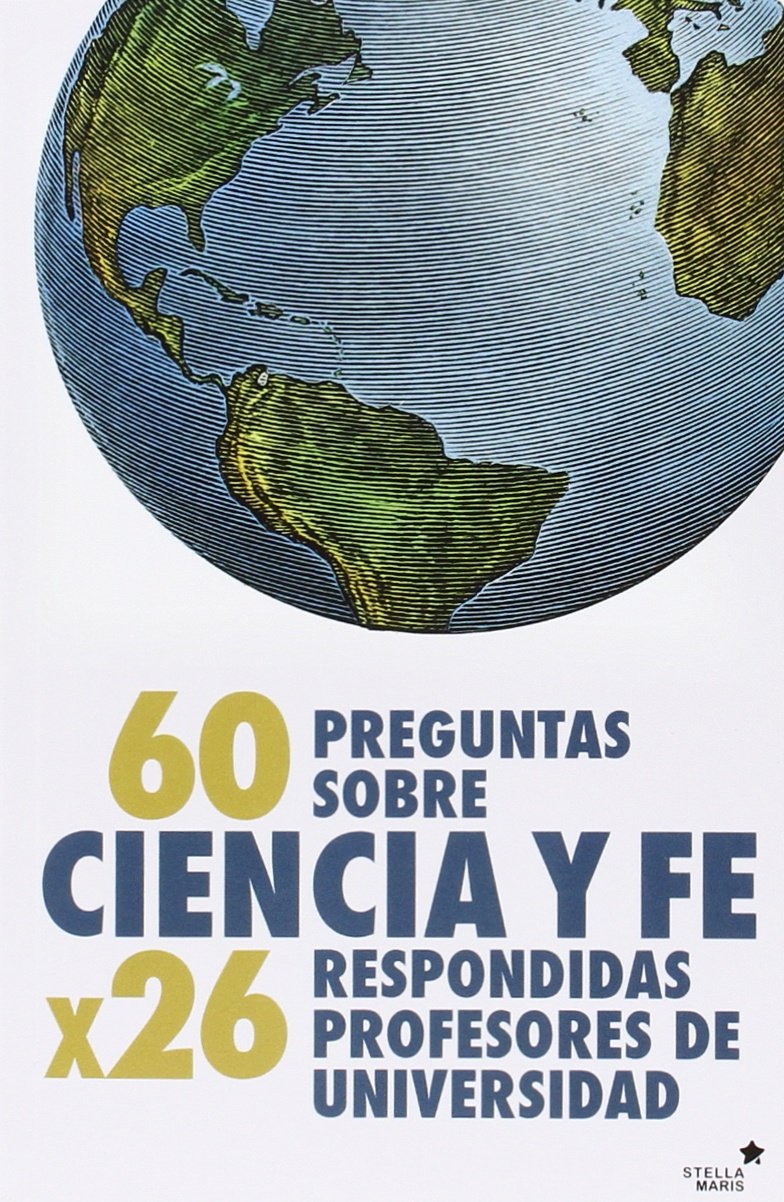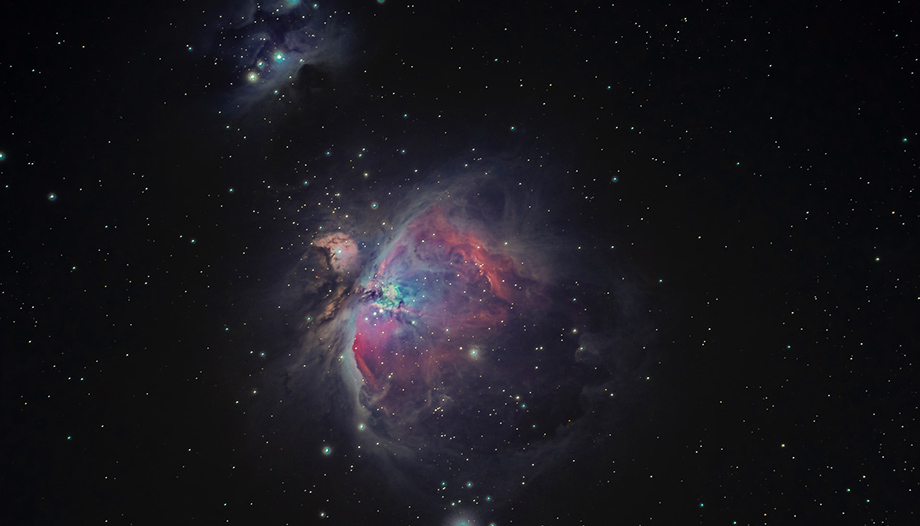In 2014, when this book was published, the idea that science and faith are compatible, that science, reason and faith should collaborate to broaden the scope of our knowledge, was quite new in the Spanish bibliophile market. Upon receiving a proposal from Editorial Stella Maris, Francisco José Soler Gil and I (Manuel Alfonseca) decided to tackle the enterprise of constructing a book that would bring together the contributions of a considerable number (26) of university authors who, through their participation, would disprove the idea, so widespread today, that science professionals cannot - or should not - have religious beliefs.
Throughout the twentieth century and so far in the twenty-first, the unstoppable rise of atheism has come to a halt. The nineteenth century predictions of the death of God and the imminent end of religion have not been fulfilled.

60 questions on science and faith answered by 26 university professors
The latest discoveries of science, especially in cosmology, have disproved the positivist prediction that religious thought would die at the hands of science. That prediction has not come true, because it was wrong.
Mainstream scientism starts from the assertion that only science can lead to valid knowledge. It is curious that those who think this way do not realize that this assertion must be false. Where does it come from? Has it been demonstrated by any science? Clearly it has not. Then, if it were true, it would have to be false, since that is precisely what it affirms, and we would arrive at a contradiction.
Therefore, the aim of this book is to contribute to the cleansing and rehabilitation of the part of thought on the borderline between science and faith, which has been devastated by scientism.
The sixty questions contained in the book are grouped thematically into ten subdivisions:
- Key issuesThey take the form of ten questions that ask whether science has limits; what science owes to Christian culture; whether there is proof of the existence of God, or whether, on the contrary, as atheists claim, God is an unnecessary hypothesis; whether science is a more advanced stage that has surpassed the "infantile" stage of religious faith; whether there can be scientific knowledge of God.
- The clash between science and faith throughout the history of the history: main arguments of materialism: In these seven questions we review whether science can give answers to all of man's questions, marginalizing God; whether it is true that the Catholic Church has systematically opposed science; whether the debate is correctly raised in the media; whether everything is matter, as materialists claim; whether the notion of the soul has become obsolete; and the problem of evil, as approached by contemporary science.
- Evolution: Nine more questions, on the compatibility of concepts such as creation and evolution, chance and design; is Darwinism necessarily atheistic; what is Darwinism? intelligent designWhat is known about the origin of life and the origin of man? Is nature amoral?
- Neuroscience: Seven questions that raise the problems of mind and consciousness, human freedom, religious experience, moral judgments, without forgetting to review Libet's experiments on freedom.
- Quantum physics: Three questions address this difficult issue to ask whether quantum mechanics is relevant to the scientific understanding of the mind; whether we can still talk about reality; and whether this branch of physics can contribute something in the discussions between science and religion.
- Cosmology: These six questions raise the issue of the origin of the universe (the Big Bang), whether it really had a beginning, whether it could have created itself, and how multiverse theories affect the idea of creation.
- Fine adjustment: This section is sufficiently important to merit an independent study. In the four corresponding questions, this problem is approached from different points of view, one of the most thorny that atheists encounter today, and which in essence is a modern version of the fifth way of St. Thomas Aquinas.
- The mathematics and religionFour questions that raise the age-old problem of whether mathematics is a construct of the human mind or a reflection of an essential dimension of reality, as well as whether there is any relationship between statistics and game theory and the problem of freedom.
- Ethical aspects of science: Six increasingly topical questions: whether science should be subject to ethical controls; whether everything that is technically feasible should be ethically admissible; what are the ethical limits of embryo research, cloning, stem cell research, genetic manipulation, gene therapy and other interventions on incipient human life; and what are the ethical consequences of environmental pollution.
- Final considerations: The che last four questions ask how the scientific method is applied and what knowledge of reality it provides; is there any room for finality in a world described by science; can a Christian be a scientist; can a scientist be a Christian; can a scientist be a Christian; can a scientist be a scientist; can a scientist be a Christian; can a scientist be a Christian?
The 60 questions included in the book do not cover all the controversial points of the relationship between science and faith, but their reading may clarify some doubts to the reader and train him in the kind of reflections necessary to unravel the philosophical and scientific aspects of the controversies on the relationship between science and faith.
We believe that a work with these characteristics does more than bear witness to the role of the Christian faith as a driving force of philosophical and scientific thought and as a generator of reflection and culture.
The mere existence of a collective book of this magnitude, in which 26 physicists, chemists, engineers, mathematicians, physicians, biologists, philosophers, etc., from various Spanish and Latin American universities cooperate to clarify the relationship between science and faith, is something out of the ordinary.
In an era like ours, in which particular knowledge tends to be disconnected from each other and the overall vision is being lost, it is not easy for a large group of specialists in different areas of knowledge to make an effort to articulate a common perspective.
Therefore, this work is an exercise of the most genuine university spirit. A spirit that, as one might suspect at the end of the reading, has something to do with the Christian perspective.
List of authors: Miguel Acosta, Manuel Alcalde, Manuel Alfonseca, Juan Arana, Emilio Chuvieco, Santiago Collado, Ignacio García Jurado, Julio Gonzalo, David Jou, Nicolás Jouve, Javier Leach, Agustina Lombardi, Alfredo Marcos, Carlos Marmelada, Juan Carlos Nieto, Javier Pérez Castells, Miguel Pérez de Laborda, Aquilino Polaino, Francisco Rodríguez Valls, Javier Sánchez Cañizares, Francisco José Soler Gil, Fernando Sols, Ignacio Sols, Pedro Jesús Teruel, Claudia Vanney and Héctor Velázquez.
The authors are from ten Spanish universities, one from Argentina, one from Mexico and one from Rome.
Since Editorial Stella Maris, which published this book, no longer exists, the book has been republished by Editorial Schedas with a similar title: Science and faith questions answered by university professors. The reason for the differences is that this new version does not include the same questions as the first one (one of the authors, Javier Leach, has died, and his answers were withdrawn).
Society of Catholic Scientists of Spain








